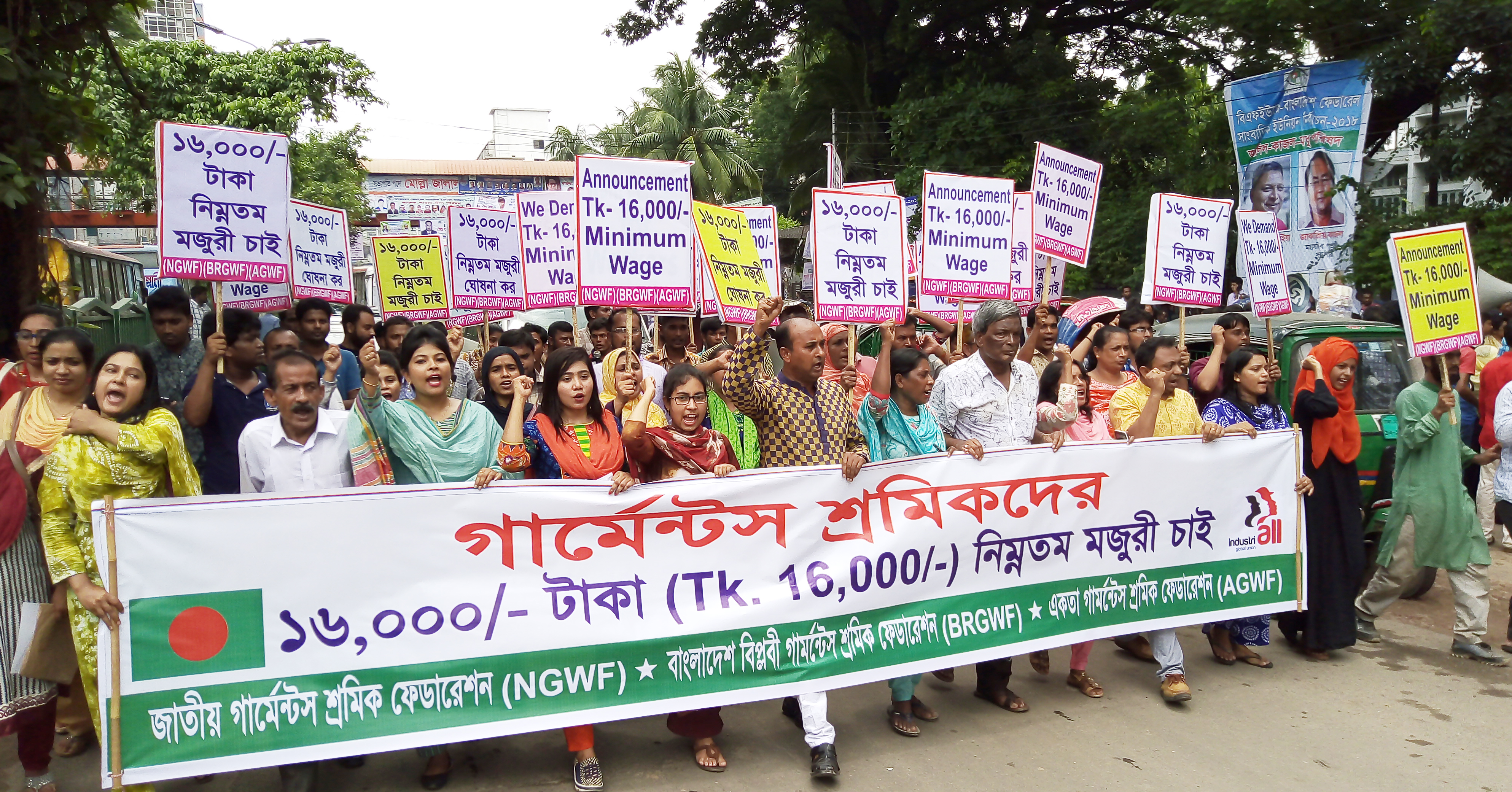
Clean Clothes Campaign condemns employers' minimum wage proposal for workers in Bangladesh and urges brands to take action
The Bangladesh garment industry employers’ association has shown utmost disregard for workers’ wellbeing and for their lives outside of garment factories. On Monday, 16 July, the Bangladesh Garment Manufacturers and Exporters Association (BGMEA) submitted a proposal to the relevant public authority for the workers’ minimum wage to be set at 6,360 taka (about 75 USD). Not only does this amount not meet any living wage standard for Bangladesh – it does not even remedy employers’ disregard for the legally required increases over the past five years.
The current minimum wage of 5,300 taka was set in 2013, and it has ever since been widely criticized as insufficient for workers to meet even their most basic needs. This minimum wage is composed of a basic wage (3,000 taka), plus allowances for transport, medical expenses and food.
The 2013 Labour Amendment Act requires for the basic wage component to be increased by five percent every year. Yet, garment workers have reported that they have been deprived of this annual increase ever since the current minimum wage was implemented, which sheds an even more negative light on BGMEA’s proposal.
“We strongly condemn the proposal handed in by the BGMEA as well as the entire wage revision process so far. The proposed “increase” of the basic wage component from 3,000 to 3,600 taka that employers have put forward is nothing but playing catch-up with statutory demands – with a delay that has cost workers hundreds of dollars over the past years,” says Ineke Zeldenrust of Clean Clothes Campaign.
A workers’ representative – who had been controversially appointed to the Minimum Wage Board by the government – handed in a proposal to raise the wage to 12,020 taka. This proposal is contravening the broad consensus among trade unions and their federations, including the Bangladesh council of the global trade union federation IndustriALL: that the new minimum wage should be set at 16,000 taka.
If brands truly want to support the genuine and fair engagement of workers in the negotiation process, they will speak out now. Silence means inaction!
In a letter sent in April to major brands sourcing from Bangladesh Clean Clothes Campaign requested that brands demonstrate leadership on the way to a living wage by publicly: supporting workers’ demand for the 16,000 taka minimum wage; making a long-term commitment to continue sourcing from Bangladesh after the wage increase; agreeing to increase their FOB price to allow for the wage increase to be met in practice and expressing concern over repression and harassment of trade union leaders. So far several brands have expressed their general support for a wage increase, but they have not meaningfully acted upon this by taking the requested steps.
“If brands truly want to support the genuine and fair engagement of workers in the negotiation process, they will speak out now. Silence means inaction!” said Zeldenrust, and pointed out that, “Brands have the responsibility to ensure that workers producing the clothes they sell earn a living wage. We once again call upon all brands sourcing from Bangladesh to live up to their own proclaimed standards and to take action before the Minimum Wage Board meets again at the end of August.”